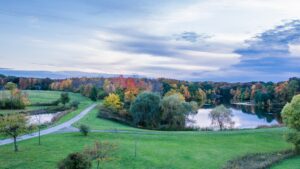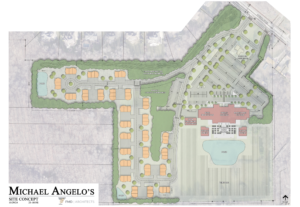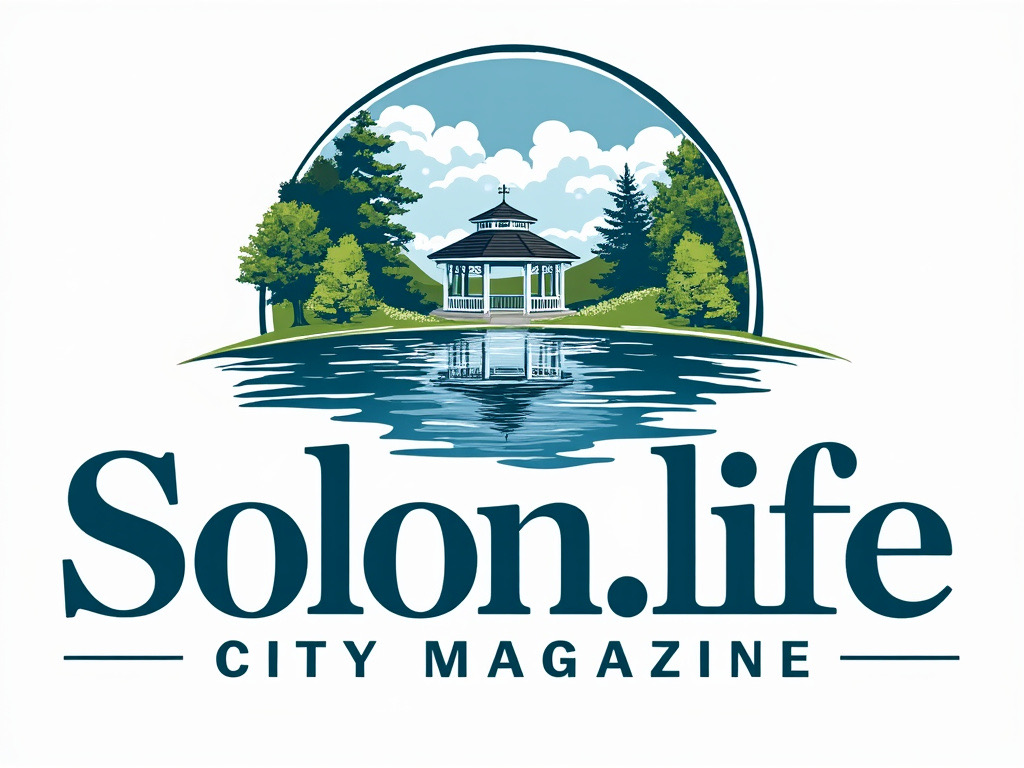This Content Is Only For Subscribers
SOLON, Ohio — The idea of a winery sprouting up in Solon has stirred both excitement and contention over the years. Nestled in this suburban community known for its top-tier schools and quiet neighborhoods, the notion of vineyards and wine glasses clashes with the city’s residential roots. As proposals have come and gone, the question lingers: could a winery ever find a home here? To explore this, we’ll dive into the past, examine the present, and ponder what the future might hold for winery development in Solon.
The Past: A Tale of Ambition and Rejection
 The most prominent chapter in Solon’s winery story unfolded in 2018 with the Kerem Lake mixed-use development. Proposed by developer Yisrael Harris and BNH Enterprise Corp., this bold plan aimed to rezone 100 acres of residential land off Bainbridge Road into a vibrant commercial hub. The centerpiece? A winery, surrounded by a boutique hotel, guest houses, shops, and up to 500 residential units—all orbiting a 21-acre man-made lake left by the property’s former owner, Dr. Stephen Luczek.
The most prominent chapter in Solon’s winery story unfolded in 2018 with the Kerem Lake mixed-use development. Proposed by developer Yisrael Harris and BNH Enterprise Corp., this bold plan aimed to rezone 100 acres of residential land off Bainbridge Road into a vibrant commercial hub. The centerpiece? A winery, surrounded by a boutique hotel, guest houses, shops, and up to 500 residential units—all orbiting a 21-acre man-made lake left by the property’s former owner, Dr. Stephen Luczek.
 The vision was grand, but it didn’t take long for storm clouds to gather. Residents of the nearby Thornbury subdivision rallied against it, worried about traffic jams, environmental damage, and a hit to their property values. “We chose Solon for its schools and peaceful neighborhoods,” one resident said at the time. “A liquor-selling business doesn’t belong here.” The opposition was fierce, and the Solon Planning Commission hesitated to greenlight the rezoning
The vision was grand, but it didn’t take long for storm clouds to gather. Residents of the nearby Thornbury subdivision rallied against it, worried about traffic jams, environmental damage, and a hit to their property values. “We chose Solon for its schools and peaceful neighborhoods,” one resident said at the time. “A liquor-selling business doesn’t belong here.” The opposition was fierce, and the Solon Planning Commission hesitated to greenlight the rezoning
Undeterred, the developers took an unconventional route. They collected 870 signatures—well above the 714 needed—to force the rezoning onto the November 2018 ballot via an initiative petition. The city pushed back, arguing the petition needed a lengthier review process, and the fight escalated to the Ohio Supreme Court. In a win for the developers, the court ruled the issue could go to a vote. But when Election Day arrived, Solon residents delivered a resounding verdict: 7,965 votes (70.5%) against, 3,338 (29.5%) for. The Kerem Lake dream was dead.
The defeat underscored a key reality in Solon: big changes require community buy-in, and vague plans don’t cut it. “We need a solid development agreement before putting zoning on the ballot,” Councilman Bill Russo noted after the vote. The episode left a mark, setting a high bar for any future winery hopefuls.
The Present: A New Proposal Takes Shape
Fast forward to 2024, and the winery conversation is back—this time with a different flavor. Michael and Matthew Ciocca, owners of the thriving Michael Angelo’s Winery and Bakery in Richfield, have set their sights on a 32-acre plot along Aurora Road. Their proposal is more modest than Kerem Lake’s sprawling blueprint: a winery with a vineyard, a bakery, a restaurant, and a cluster of luxury townhomes pitched as a “farm/winery lifestyle” retreat.

The Ciocca brothers are playing it smart. They’ve promised to collaborate with city officials and residents, scheduling public hearings to gather feedback and tweak their plans. “We want to present the best possible project for Solon,” they’ve said. The development would offer event spaces for gatherings like weddings or corporate retreats, aiming to blend rural charm with suburban convenience.
But hurdles remain. Like its 2018 predecessor, this project needs a zoning change—from residential to mixed-use planned district—which means it must face Solon voters. Early reactions are mixed. Some see it as a win for the local economy and a unique addition to the city. “A family-owned winery with vineyards and a restaurant? That’s something Solon doesn’t have,” one supporter enthused. Others aren’t sold, citing the city’s master plan, which prioritizes protecting residential areas from commercial sprawl. “The plan says it clear as day: balance development without encroaching on neighborhoods,” a skeptic argued at a recent hearing. Traffic, noise, and overdevelopment fears echo the 2018 uproar.
The Future: A Vineyard or a Vote?
So, would a winery happen in Solon? The answer hinges on a few critical factors. Zoning changes here aren’t a rubber stamp—they’re a public referendum, and voters hold the reins. The Ciocca proposal, likely headed for a 2025 ballot, will test whether a smaller, community-focused pitch can succeed where a blockbuster plan failed.
The developers’ outreach could be a game-changer. By listening to residents and refining their vision, they’re dodging the top-down vibe that sank Kerem Lake. The project’s scale—less ambitious, more intimate—might also ease fears of Solon turning into a commercial free-for-all. Still, the ghosts of 2018 linger. The city’s focus on redevelopment elsewhere, like the Sears Grand site, signals a cautious approach to new ventures. And residents remain vigilant about preserving what drew them here: a quiet, family-friendly haven.
If it’s going to work, the Ciocca brothers will need to nail the details—think ironclad traffic plans, environmental safeguards, and a pitch that screams “this fits Solon.” Economic perks, like jobs and tourism, could sway some, but only if the trade-offs don’t feel too steep.
For now, the winery remains a tantalizing “maybe.” Picture it: sipping a glass of Solon-made wine, gazing over rolling vines. It’s a pretty image, but turning it into reality will take more than a good vintage—it’ll take a community convinced it’s worth the pour. As the debate unfolds, one thing’s certain: in Solon, the people will decide.


